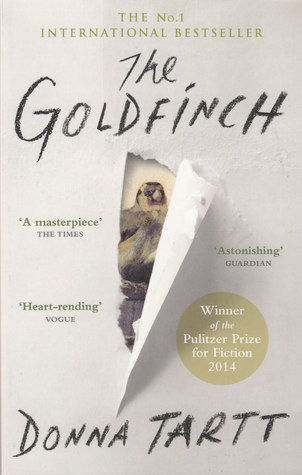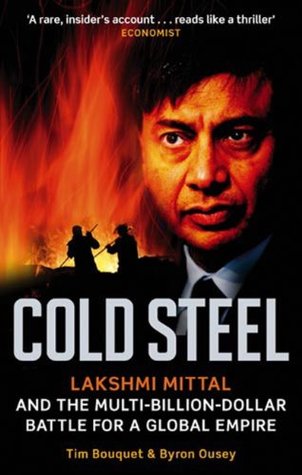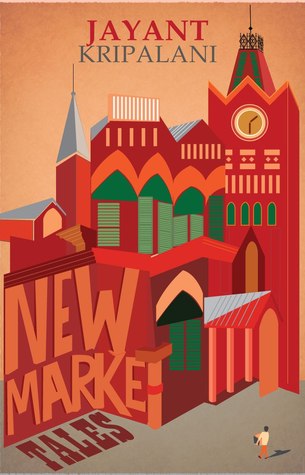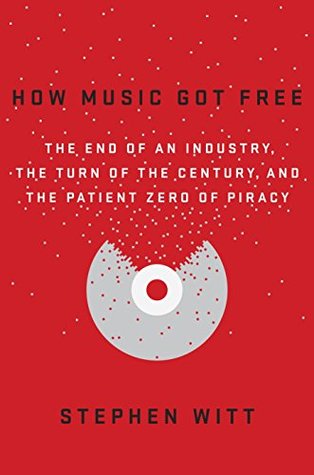Hello and welcome back to the fourth edition of the… well, whatever the title tells you that this is going to be. Today, we look back at the year in reading and the best books of the year 2015 – yeah, that’s the one that just went by if you still haven’t recovered from last night’s hangover.
As much as I would love to recount how 2015 was a very eventful year for me – a year of many firsts, to be precise – this is not the platform for such indulgences, unless they are literary in nature. So let us see – first time I didn’t make it to the top 1% of the Pocket readers’ list, first time I did not accomplish my original annual reading target, first time in four years that I took a break from reading out of fatigue. But then, all the above instances can be explained by the fact that I have attained enlightenment as a reader and am not perturbed by the numbers game.
2015 was indeed the year of non-fiction getting its due in my reading preferences – as exactly half of the 36 books I read fell under the category. So much for claiming this would never happen, but the MBA life did cause a seismic shift and given the quality of non-fiction in the shelves of my college library, I’d be the bigger fool for not making use of it in the little time I have left before I am chucked out into yet another life.
Moving on to the best reads I’ve come across this year, the relatively low tally means I did not have much to choose from. So compiling this list wasn’t a tough task as it had been in the preceding years – but the list still has a good mix of all genres. So without ado, here are the ten (plus five) best books I had the pleasure of reading in the days of the year past –
The Colonel Who Would Not Repent
Author: Salil Tripathi
Publisher: Aleph Book Company [Hardcover]
First Published: 2014
Summary: Between March and December 1971, the Pakistani army committed atrocities on an unprecedented scale in the country's eastern wing. Pakistani troops and their collaborators were responsible for countless deaths and cases of rape. Clearly, religion alone wasn't enough to keep Pakistan's two halves united. From that brutal violence, Bangladesh emerged as an independent nation, but the wounds have continued to fester. The gruesome assassination of Sheikh Mujibur Rahman, the country's charismatic first prime minister and most of his family, the coups and counter-coups which followed, accompanied by long years of military rule were individually and collectively responsible for the country's inability to come to grips with the legacy of the Liberation War Four decades later, as Bangladesh tries to bring some accountability and closure to its blood-soaked past through controversial tribunals prosecuting war crimes, Salil Tripathi travels the length and breadth of the country probing the country's trauma through interviews with hundreds of Bangladeshis. His book offers the reader an unforgettable portrait of a nation whose political history since Independence has been marked more by tragedy than triumph.
Review: I had been a regular reader of Salil Tripathi’s columns when I subscribed to Mint and when I learnt that he had written a book on a subject that interested me greatly, the opportunity to read it was just too good to pass. A well-researched chronicle that gives a humanistic account of the bloody massacre that engulfed Bangladesh for not just the Liberation War but decades that followed.
The first book I read this year and definitely one I’d recommend.
The Goldfinch
Author: Donna Tartt
Publisher: Abacus [Paperback]
First Published: 2013
Summary: Aged thirteen, Theo Decker, son of a devoted mother and a reckless, largely absent father, survives an accident that otherwise tears his life apart. Alone and rudderless in New York, he is taken in by the family of a wealthy friend. He is tormented by an unbearable longing for his mother, and down the years clings to the thing that most reminds him of her: a small, strangely captivating painting that ultimately draws him into the criminal underworld. As he grows up, Theo learns to glide between the drawing rooms of the rich and the dusty antiques store where he works. He is alienated and in love - and his talisman, the painting, places him at the centre of a narrowing, ever more dangerous circle.
The Goldfinch is a haunted odyssey through present-day America and a drama of enthralling power. Combining unforgettably vivid characters and thrilling suspense, it is a beautiful, addictive triumph - a sweeping story of loss and obsession, of survival and self-invention, of the deepest mysteries of love, identity and fate.
Review: I read this book at a juncture in my life when I was emotionally vulnerable and honestly, the romance seriously effed up my mind. However, the fact that it could affect me so deeply is the hallmark of a great work of literature and Ms Tartt deserves full credit for writing a story that makes you live, love and suffer like Theo Decker did.
Cold Steel: Lakshmi Mittal and the Multi-Billion Dollar Battle for a Global Empire
Author: Tim Bouquet and Byron Ousey
Publisher: Abacus [Paperback]
First Published: 2008
Summary: When the world’s two largest steel producers went head to head in a bitter struggle for market domination, an epic corporate battle ensued that sent shockwaves through the political corridors of Europe, overheated the world’s financial markets and transformed the steel industry. Billions of dollars were at stake.
At the heart of the battle were two men: Guy Dollé, Chairman and CEO of Luxembourg-based Arcelor, the world’s largest steel producer by turnover and Lakshmi Mittal, a self-made Indian industrialist and the richest man in Great Britain. Only one could prevail . . .
Review: A book that comprehensively narrates the battle for world domination in the steel industry – corporate espionage, unexpected twists in the tale and chess-like strategies are all part of what is a rollicking tale. Could’ve been a perfect read if not for the rather abrupt ending, but it deserves a strong recommendation.
New Market Tales
Author: Jayant Kripalani
Publisher: Picador [Paperback]
First Published: 2013
Summary: There was something about Calcutta in the 1960s and 1970s – a once-glorious city found itself torn by the Naxalite movement. Revolution and history were being staged at every street corner. But not all of Calcutta would succumb to that chaos and confusion. Certainly not New Market. Lives had to be lived, goods had to be sold, money had to be made. Nothing had shaken the historic market since its illustrious beginnings in 1874, not the World Wars, not the struggle for Independence; the market thrived no matter who was in power.
Armed with a fistful of memories, Jayant Kripalani weaves nostalgia into these short stories about the inhabitants of New Market. A sprawling landscape that houses both enterprise and extraordinary people, New Market continues to be something of an institution in Calcutta. And any time is a good time to revisit it by taking a trip down Kripalani’s memory lane and meeting Francis the jewellery maker, Ganguly Gainjeewallah and his activist-daughter Gopa, and a cast of characters who excite you, exasperate you but still win you over.
Review: Jayant Kripalani is a well-known thespian but I picked this one without much expectations. Probably that worked in its favour, for the simplicity of the prose and adept storytelling is a major plus. The infusion of nostalgia and heart make this collection of short stories an undisputed literary triumph.
The Wind-Up Bird Chronicle
Author: Haruki Murakami [translated from the Japanese by Jay Rubin]
Publisher: Vintage [Paperback]
First Published: 1994
Summary: Toru Okada's cat has disappeared. His wife is growing more distant every day. Then there are the increasingly explicit telephone calls he has recently been receiving. As this compelling story unfolds, the tidy suburban realities of Okada's vague and blameless life, spent cooking, reading, listening to jazz and opera and drinking beer at the kitchen table, are turned inside out, and he embarks on a bizarre journey, guided (however obscurely) by a succession of characters, each with a tale to tell.
Review: This one puzzles and dazzles at the same time. Right up there with Murakami's finest works.
Yeah, there’s really no point trying to tell you anything about the book itself. Read it to believe it.
The Bad Girl
Author: Mario Vargas Llosa [translated from the Spanish by Edith Grossman]
Publisher: Faber and Faber [Paperback]
First Published: 2006
Summary: When the beautiful teenage Lily arrives in Lima in 1950, fifteen-year-old Ricardo falls instantly in love with her. She claims to be from Chile, but vanishes the moment it becomes clear that she has lied about both her name and her nationality. A decade later, now living in Paris, Ricardo falls in love with a woman named Comrade Arlette, who is incredibly similar to Lily but refuses to acknowledge that she is the same person. For his whole life, Ricardo seems doomed to keep running into 'Lily', and to keep falling in love with her. Will he ever discover who she really is?
Review: "What cheap, sentimental things you say, good boy!"
There were no words to describe the profound sadness I felt when I reached the end of what was arguably the most incredible, hopelessly romantic tale I've had the pleasure of reading.
"The Bad Girl" will conquer your heart over and over again. Highly recommended.
Quiet: The Power of Introverts in a World That Can’t Stop Talking
Author: Susan Cain
Publisher: Penguin [Paperback]
First Published: 2012
Summary: At least one-third of the people we know are introverts. They are the ones who prefer listening to speaking, reading to partying; who innovate and create but dislike self-promotion; who favor working on their own over brainstorming in teams. Although they are often labeled "quiet," it is to introverts that we owe many of the great contributions to society--from van Gogh’s sunflowers to the invention of the personal computer.
Passionately argued, impressively researched, and filled with indelible stories of real people, Quiet shows how dramatically we undervalue introverts, and how much we lose in doing so. Taking the reader on a journey from Dale Carnegie’s birthplace to Harvard Business School, from a Tony Robbins seminar to an evangelical megachurch, Susan Cain charts the rise of the Extrovert Ideal in the twentieth century and explores its far-reaching effects. She talks to Asian-American students who feel alienated from the brash, backslapping atmosphere of American schools. She questions the dominant values of American business culture, where forced collaboration can stand in the way of innovation, and where the leadership potential of introverts is often overlooked. And she draws on cutting-edge research in psychology and neuroscience to reveal the surprising differences between extroverts and introverts.
Perhaps most inspiring, she introduces us to successful introverts--from a witty, high-octane public speaker who recharges in solitude after his talks, to a record-breaking salesman who quietly taps into the power of questions. Finally, she offers invaluable advice on everything from how to better negotiate differences in introvert-extrovert relationships to how to empower an introverted child to when it makes sense to be a "pretend extrovert."
This extraordinary book has the power to permanently change how we see introverts and, equally important, how introverts see themselves.
Review: I cannot describe what I felt when I watched Ms Cain’s TED Talk for the first time and everything she spoke about resonated so strongly that I was determined to read her book someday. And the moment I arrived back on campus after my summer internship, I found a copy in my college library and I read it, only to rediscover and see myself in an entirely different light. No doubt I am far better a communicator today than I used to be a year ago, but this book helped me learn to accept myself and be proud of who I really am.
Pundits from Pakistan: On Tour with India 2003-04
Author: Rahul Bhattacharya
Publisher: Penguin [Paperback]
First Published: 2005
Summary: In 2004 the Indian cricket team headed to Pakistan to play a historic series. Accompanying them was young cricket reporter Rahul Bhattacharya. The mood was tense, with political provocations and security fears. But as the arch-rivals met on the field, a rare spirit of bonhomie spread throughout the tour. And in streets and homes in Lahore, Karachi, Peshawar, Multan, the author had many warm human encounters that made the tour unforgettable. This book vividly brings alive the magic of cricket, even as it chronicles an emotional and hopeful time, witnessed by a young Indian discovering Pakistan.
Review: This book is a bit of everything - cricket reportage, memoir, travelogue as well as a piece of work that defines Indo-Pak cricket as we have known it for our lives. An instant classic by all means.
How Music Got Free: The End of an Industry, the Turn of the Century, and the Patient Zero of Piracy
Author: Stephen Witt
Publisher: Viking [eBook]
First Published: 2015
Summary: "What happens when an entire generation commits the same crime?"
How Music Got Free is a riveting story of obsession, music, crime, and money, featuring visionaries and criminals, moguls and tech-savvy teenagers. It’s about the greatest pirate in history, the most powerful executive in the music business, a revolutionary invention and an illegal website four times the size of the iTunes Music Store.
Journalist Stephen Witt traces the secret history of digital music piracy, from the German audio engineers who invented the mp3, to a North Carolina compact-disc manufacturing plant where factory worker Dell Glover leaked nearly two thousand albums over the course of a decade, to the high-rises of midtown Manhattan where music executive Doug Morris cornered the global market on rap, and, finally, into the darkest recesses of the Internet.
Through these interwoven narratives, Witt has written a thrilling book that depicts the moment in history when ordinary life became forever entwined with the world online — when, suddenly, all the music ever recorded was available for free. In the page-turning tradition of writers like Michael Lewis and Lawrence Wright, Witt’s deeply-reported first book introduces the unforgettable characters—inventors, executives, factory workers, and smugglers—who revolutionized an entire art form, and reveals for the first time the secret underworld of media pirates that transformed our digital lives.
An irresistible never-before-told story of greed, cunning, genius, and deceit, How Music Got Free isn’t just a story of the music industry—it’s a must-read history of the Internet itself.
Review: The remarkable story of global music piracy and the unprecedented rise of the mp3. A terrific work of investigative reportage that busts the age-old myth that pirated music is a crowd-sourced phenomenon and confirms Witt's storytelling ability in the legacy of Michael Lewis. Highly recommended.
The Martian
Author: Andy Weir
Publisher: Crown [eBook]
First Published: 2014
Summary: Six days ago, astronaut Mark Watney became one of the first people to walk on Mars.
Now, he's sure he'll be the first person to die there.
After a dust storm nearly kills him and forces his crew to evacuate while thinking him dead, Mark finds himself stranded and completely alone with no way to even signal Earth that he’s alive—and even if he could get word out, his supplies would be gone long before a rescue could arrive.
Chances are, though, he won't have time to starve to death. The damaged machinery, unforgiving environment, or plain-old "human error" are much more likely to kill him first.
But Mark isn't ready to give up yet. Drawing on his ingenuity, his engineering skills—and a relentless, dogged refusal to quit—he steadfastly confronts one seemingly insurmountable obstacle after the next. Will his resourcefulness be enough to overcome the impossible odds against him?
Review: "The Martian" is proof that a well-written protagonist can often make up for flaws in a novel. And when you have someone like Mark Watney - resourceful, gritty and armed with an indomitable sense of humour against the face of overwhelming odds - boy, it is one helluva ride!
A strong recommendation solely for this space-age Crusoe.
And now we look at the (plus five) section. The illustrious winners of the consolation prize are –
Cobalt Blue by Sachin Kundalkar [translated from the Marathi by Jerry Pinto]
A beautiful tale of love and loss in which two siblings – brother and sister – both fall for the same man.
Right Ho, Jeeves by P.G. Wodehouse
An evergreen tale featuring the adorable oaf Bertie Wooster and his suave valet, the inimitable Reginald Jeeves.
Vikalang Shraddha Ka Daur by Harishankar Parsai
A collection of essays and short fiction by arguably the greatest Hindi satirist of all time written during the Emergency era.
Salt and Sawdust by R.K. Narayan
Features a couple of short stories and a bunch of essays on a range of subjects from literary criticism to culinary chronicles.
Essays by George Orwell
It’s George Orwell. Need I say more?
And so we come to the end of what was… again, check the header of this post. Thank you for reading this and I wish you a very Happy New Year. May the Force be with you in 2016, as it is with J.J. Abrams at the box office. Here’s to another year of great books and fine literature!
As always, resolve to read better this year. Happy Reading!
That’s all, Folks!










